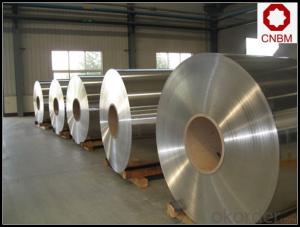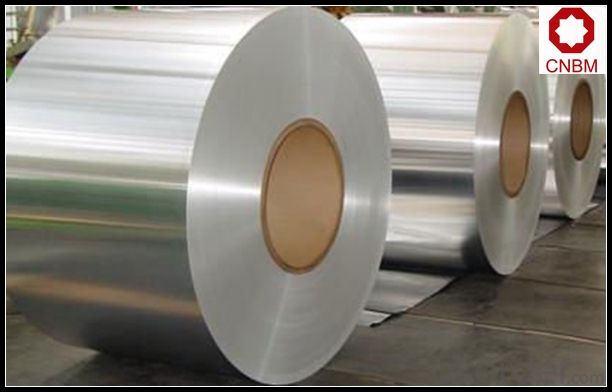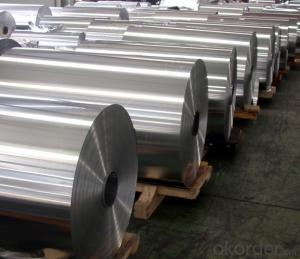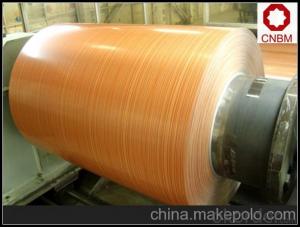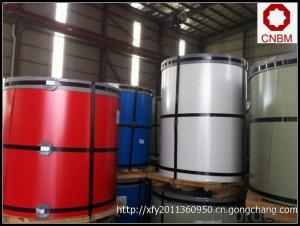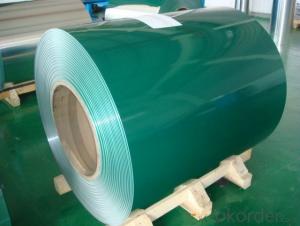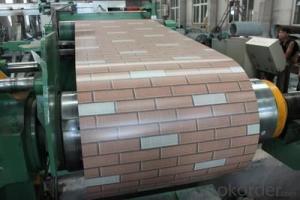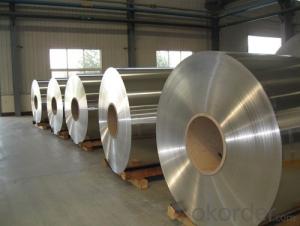3105 Aluminum Coil for Ceiling Wall Building Material
- Loading Port:
- Shanghai
- Payment Terms:
- TT OR LC
- Min Order Qty:
- 5 m.t.
- Supply Capability:
- 10000 m.t./month
OKorder Service Pledge
OKorder Financial Service
You Might Also Like
Specification
1. Specification of Aluminum Coil for Ceiling Wall Building Material
Thickness | 0.1mm-10mm |
Popular Thickness | 0.1mm/0.2mm/0.25mm/0.3mm/0.6mm/0.8mm/1.0mm/1.2mm/1.5mm/2.0mm/3.0mm... |
Width | 20mm-2500mm |
inner diameter | 505mm 508mm 605mm |
Material | 1050,1060,1070,1100,1200,3003,3004,3005,5052,5005,5754,5083 |
Temper | O,H12,H14,H16,H18,H22,H24,H26,H32,H34,H36,H38,H111,H112 |
Surface | mill finish |
Packing | Export standard wooden pallets |
Payment Terms | 100% irrevocable L/C at sight or 30% T/T in advance as deposit,70% balance against the B/L copy |
Minimum Order Quantity | 5000kg |
Delivery time | 15-25 days after receiving L/C or deposit |
Remark | Specific requirement of alloy grade, temper or specification can be discussed at your request |
2. Application of Aluminum Coil for Ceiling Wall Building Material
(1).Interior: wall cladding, ceilings, bathrooms, kitchens and balconies, shutters, doors...
(2).Exterior: wall cladding, facades, roofing, canopies, tunnels,column covers , renovations...
(3).Advertisement: display platforms, signboards, fascia, shop fronts...
3. Feature of Aluminum Coil for Ceiling Wall Building Material
*Such coil is specially designed to replace aluminum ingot, due to the high export tax of aluminum ingot, the coil has better price than ingot.
*This type of coil can fit customer's remelting furnace just like ingot, no need to make any change to the production line that was previously used for ingot. The standard coil size and weight is very suitable for the feed gate of furnace.
*This type of coil causes less material wastage than ingot when remelted.
*Our coil is made directly from ore, no need to go though the ingot making process, quality is much better than other suppliers who use ingot scrap to make coil.
Be free from Oil Stain, Dent, Inclusion, Scratches, Stain, Oxide Dicoloration, Breaks, Corrosion, Roll Marks, Dirt Streaks and other defect which will interfere with use
4. Certificate:
SGS and ROHS(if client request, paid by client), MTC(plant provided), Certificate of Origin(FORM A, FORM E, CO), Bureau Veritas and SGS (if client request, paid by client), CIQS certificate
5. Image of Aluminum Coil for Ceiling Wall Building Material
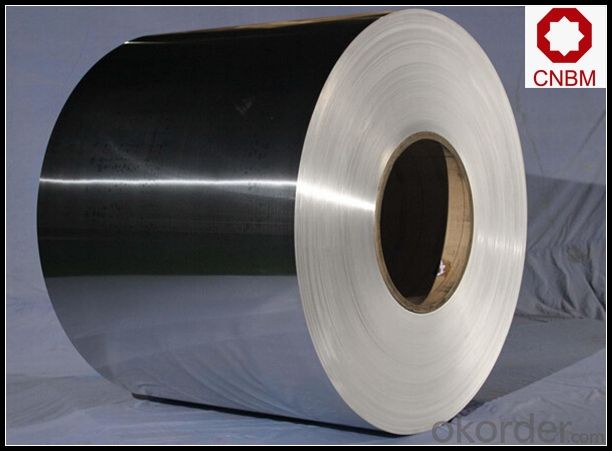
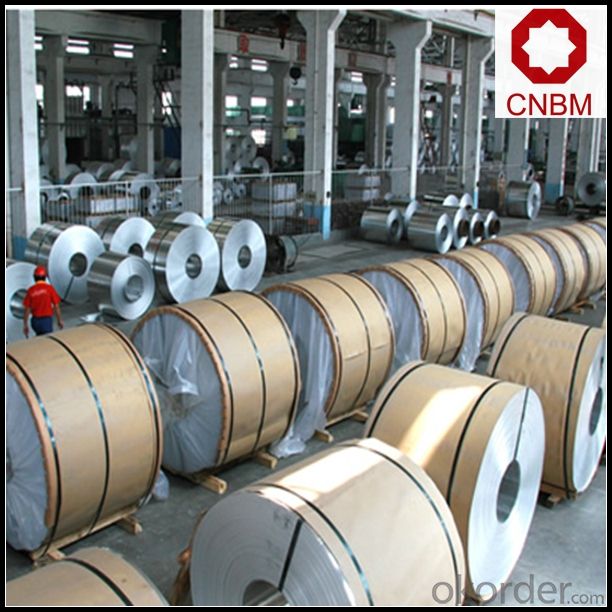
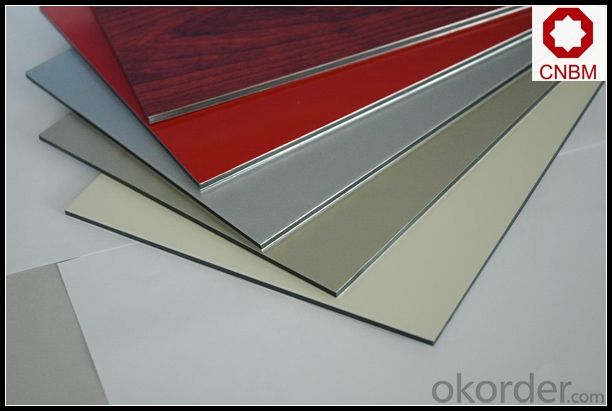
6. Package and shipping of Aluminum Coil for Ceiling Wall Building Material
eye to wall
eye to the wall
with wood pallet (wooded case also available)
7. FAQ
1) What is the delivery time?
Dpends on actual order, around 20 to 35 days
2)What is the QC system:
We have QC staff of 20 persons and advanced equipment, each production is with MTC traced from Aluminum ingot lot.
3) What market do you mainly sell to?
Australia, America, Asia, Middle East, Western Europe, Africa etc
- Q: How are aluminum coils tested for mechanical properties?
- Aluminum coils are tested for mechanical properties through a series of standardized tests that evaluate their strength, ductility, and other relevant properties. Some common methods used for testing aluminum coils include tensile testing, hardness testing, and bend testing. Tensile testing is one of the most widely used methods to assess the mechanical properties of aluminum coils. This test involves applying a pulling force to a small section of the coil until it breaks. The force and elongation are measured throughout the test, and these values help determine the coil's ultimate tensile strength, yield strength, and elongation at break. Hardness testing is another important evaluation method that measures the resistance of the aluminum coil to indentation or scratching. It gives an indication of the coil's ability to withstand external forces. Different hardness testing methods, such as Brinell, Rockwell, and Vickers, can be used depending on the specific requirements. Bend testing is performed to assess the ductility and formability of the aluminum coil. This test involves bending the coil to a specific angle or radius and examining it for any signs of cracking, wrinkling, or other defects. It helps determine the coil's ability to undergo forming processes without failure. In addition to these standard tests, other mechanical properties such as fatigue resistance, impact resistance, and fracture toughness can be evaluated through specialized testing methods. These tests provide valuable information about the aluminum coil's performance and help ensure that it meets the required specifications and standards. Overall, a combination of tests is employed to comprehensively assess the mechanical properties of aluminum coils, ensuring they have the necessary strength, ductility, and other properties needed for their intended applications.
- Q: This question asks for guidelines on how to properly store aluminum coils to ensure their safety and longevity.
- <p>To store aluminum coils, follow these steps: Ensure the storage area is clean, dry, and free from dust and moisture. Keep the coils on wooden pallets or racks to avoid direct contact with the ground. Stack the coils with the same size and type to prevent damage. Use protective wrapping or covers to prevent scratches and dirt accumulation. Maintain proper ventilation to prevent condensation. Store coils away from corrosive materials and chemicals. Regularly inspect the coils for any signs of damage or corrosion. By following these guidelines, you can maintain the quality and integrity of aluminum coils during storage.</p>
- Q: It's time for a new bike and I don't know enough about the pros and cons of aluminum vs. carbon fiber. I can get a low-end carbon bike or a high-end aluminum for about the same price, so the budget is not really a major issue. Any opinions would be appreciated.
- i personaly would chose carbon for every thing but price but if your on a buget get the aluminum the cannondale rush 3 is a good aluminum bike for a reason price
- Q: Can aluminum coils be used in automotive radiators?
- Yes, aluminum coils can be used in automotive radiators. In fact, aluminum is a popular choice for radiator construction due to its excellent heat transfer properties, lightweight nature, and corrosion resistance.
- Q: What are the elements and compounds that make up an aluminum coil?
- <p>The chemical composition of an aluminum coil is primarily aluminum (Al), which is a lightweight, malleable, and ductile metal. It is usually represented by its elemental symbol 'Al' and has an atomic number of 13. Aluminum is often alloyed with other elements to improve its strength and performance. Common alloying elements include copper (Cu), magnesium (Mg), manganese (Mn), silicon (Si), and zinc (Zn). These elements are added in varying percentages depending on the specific properties required for the aluminum coil's application. The purity of aluminum in a coil can range from 99.00% to 99.7%, with the remainder being trace amounts of other elements.</p>
- Q: Are aluminum coils easy to install?
- Yes, aluminum coils are generally easy to install. They are lightweight and flexible, which makes them easier to handle and maneuver during installation. They can be easily cut and shaped to fit the specific requirements of the installation, and they are often available in pre-cut sizes, further simplifying the installation process. Additionally, aluminum coils are typically designed with features such as interlocking edges or snap-on connectors, which make it easier to join multiple coils together or connect them to other components. Overall, with the right tools and basic knowledge of HVAC installation, aluminum coils can be installed relatively easily.
- Q: A certain ionic compound is made entirely of aluminum and oxygenWhat is the formula for this compound?
- Aluminum Oxide Al2O3
- Q: What are the weight considerations when using aluminum coils?
- When using aluminum coils, there are several weight considerations to take into account. Firstly, aluminum coils are generally lighter in weight compared to other metals, such as steel. This makes them a popular choice in industries where weight reduction is a priority, such as automotive manufacturing or aerospace applications. The lightweight nature of aluminum coils allows for improved fuel efficiency in vehicles and increased payload capacity in airplanes. Secondly, the weight of the aluminum coil itself is important to consider. Depending on the specific application, the weight of the coil may need to be within certain limits to ensure proper functioning and structural integrity. For example, in HVAC systems, the weight of the aluminum coil needs to be suitable for the unit to be mounted securely and able to withstand vibrations or pressure changes. Additionally, the weight of the aluminum coil can impact transportation and installation. Lighter coils are easier to handle, transport, and install, reducing the time and effort required for these processes. This can be particularly advantageous in construction projects where large quantities of aluminum coils are used. It is also crucial to consider the weight-bearing capacity of the structures or equipment that will be supporting or utilizing the aluminum coils. The weight of the coils, combined with any additional components or materials, should not exceed the load capacity of the system to avoid structural failure or safety hazards. Lastly, the weight of aluminum coils can affect cost considerations. Since aluminum is typically priced based on weight, lighter coils may be more cost-effective compared to heavier alternatives. However, it is important to strike a balance between weight reduction and meeting the required performance and strength specifications. In conclusion, weight considerations when using aluminum coils encompass factors such as the overall weight reduction benefits, the weight of the coil itself, transportation and installation ease, load-bearing capacity, and cost implications. Taking these considerations into account ensures the successful and efficient utilization of aluminum coils in various industries and applications.
- Q: What are the potential applications of pre-painted aluminum coils?
- Pre-painted aluminum coils have a wide range of potential applications due to their versatility and durability. One potential application is in the construction industry, where pre-painted aluminum coils can be used for roofing and cladding. The pre-painted coating provides an attractive and protective finish, making it ideal for both residential and commercial buildings. Additionally, aluminum is lightweight, which makes it easier to install and transport. Another potential application is in the manufacturing of appliances and electronics. Pre-painted aluminum coils can be used to create outer casings for various appliances, such as refrigerators, ovens, and air conditioners. The coating provides a smooth and aesthetically pleasing finish, while the aluminum itself offers excellent heat dissipation properties. Pre-painted aluminum coils also find applications in the automotive industry. The durable coating helps protect the surface of the vehicle from scratches, UV rays, and corrosion. Additionally, aluminum is lightweight, which can contribute to fuel efficiency and improved performance. In the signage industry, pre-painted aluminum coils are commonly used for outdoor and indoor signage. The coating provides a long-lasting and vibrant finish, making it suitable for a variety of signage applications, such as billboards, store signs, and traffic signs. Furthermore, pre-painted aluminum coils can be employed in the manufacturing of furniture and fixtures. The coating adds a decorative touch to furniture pieces, while the aluminum provides strength and stability. This makes pre-painted aluminum coils suitable for items such as cabinets, shelves, and decorative panels. Overall, the potential applications of pre-painted aluminum coils are vast and diverse. Their versatility, durability, and attractive finish make them suitable for various industries, including construction, manufacturing, automotive, signage, and furniture.
- Q: why is aluminum used for railway lines?thanks x
- If you look at the recent trend in the materials used for railway vehicles, you may find that the mainstream material is lightweight aluminum, which is environmentally-friendly not only for bullet trains, but also for express trains. For commuter trains, stainless steel and aluminum materials are typically used, taking advantage of the merits of both metals.
Send your message to us
3105 Aluminum Coil for Ceiling Wall Building Material
- Loading Port:
- Shanghai
- Payment Terms:
- TT OR LC
- Min Order Qty:
- 5 m.t.
- Supply Capability:
- 10000 m.t./month
OKorder Service Pledge
OKorder Financial Service
Similar products
Hot products
Hot Searches
Related keywords
